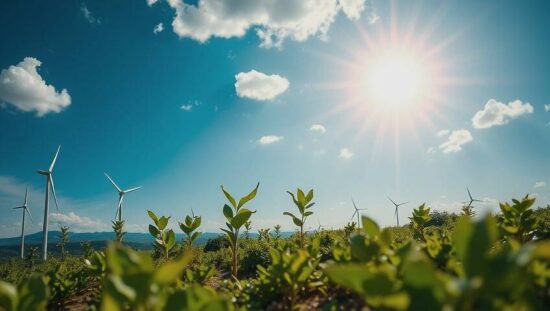Renewable energy share in increasing power consumption to reach 54% in 2024
According to the German Environment Agency (UBA), the share of renewable energy in the country’s power consumption is expected to rise to around 54% in 2024, up from 46.3% in 2022 and 52.5% in 2023.
In 2024, the total power generation from renewable energy sources is forecast to reach around 285 terawatt-hours (TWh), a 4% increase over the previous year. The share of renewable energy in the heating sector has also seen a slight increase, while the use of biofuels in the transport sector has decreased due to changes in regulatory rules.
Despite the positive development in power generation, the UBA’s president, Dirk Messner, emphasized that more needs to be done to achieve the goal of covering 80% of the country’s power demand with renewable energy by 2030. The increasing electrification of the heating and transport sectors will lead to a higher power demand, and the development of renewable energy must be accelerated in the coming years to reach this target.
Wind power generation in 2024 is expected to be around 141 TWh, roughly the same as the previous year, with a slight increase in installed capacity. The government aims to increase the installed capacity of onshore and offshore wind power to 115 GW and 30 GW, respectively, by 2030.
Solar power generation, on the other hand, is expected to increase by 16% to around 74 TWh, driven by the rapid growth of photovoltaic (PV) installations, which have increased by nearly 16 GW to around 98 GW. The number of new PV installations connected to the grid has exceeded one million per year.
Biomass, hydro, and geothermal power plants also contributed to the renewable energy mix, with a total power generation of around a quarter of the renewable energy share.
The UBA emphasized that, in addition to the power sector, the heating and transport sectors must also be transformed to achieve the climate goals. While the use of renewable energy in the heating sector has seen a slight increase, it is still a long way from the target. The agency also noted that the use of biofuels in the transport sector has decreased, but that the electrification of vehicles and the use of climate-friendly fuels will play a crucial role in the energy transition in the long run.
A change in the 38th Federal Emission Protection Ordinance (BImSchV) led to a significant decrease in the use of biofuels in 2024, with a possible rebound in the following years.





